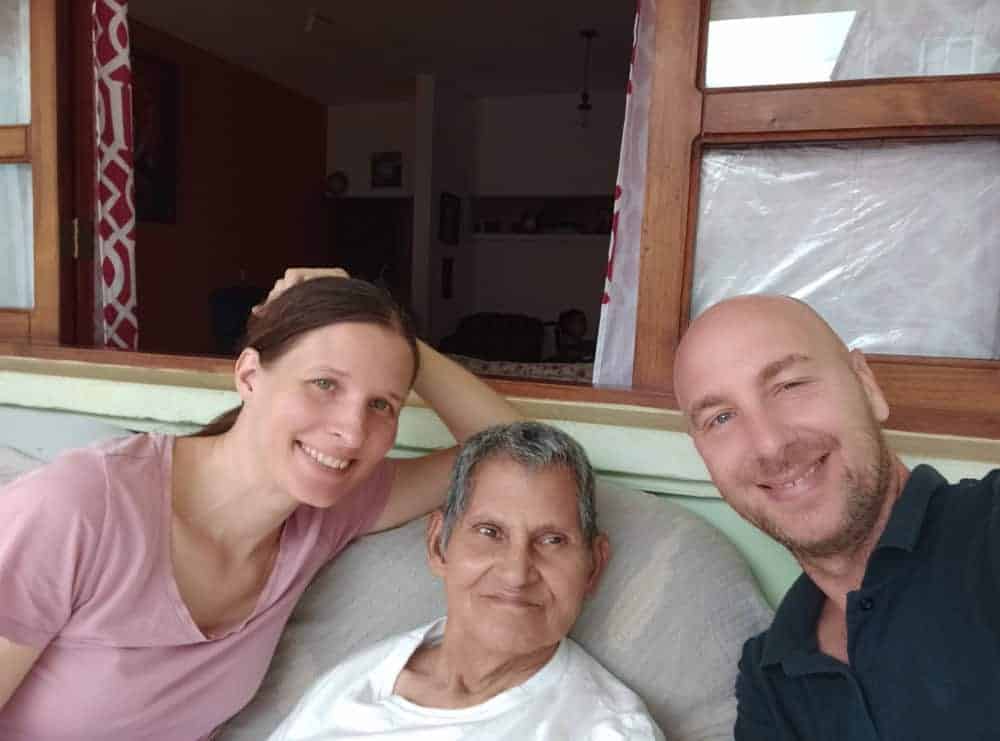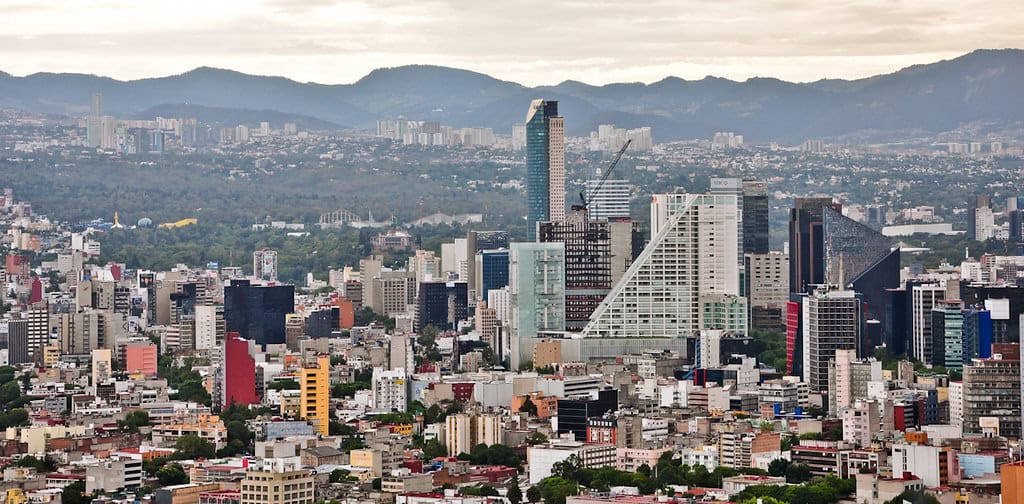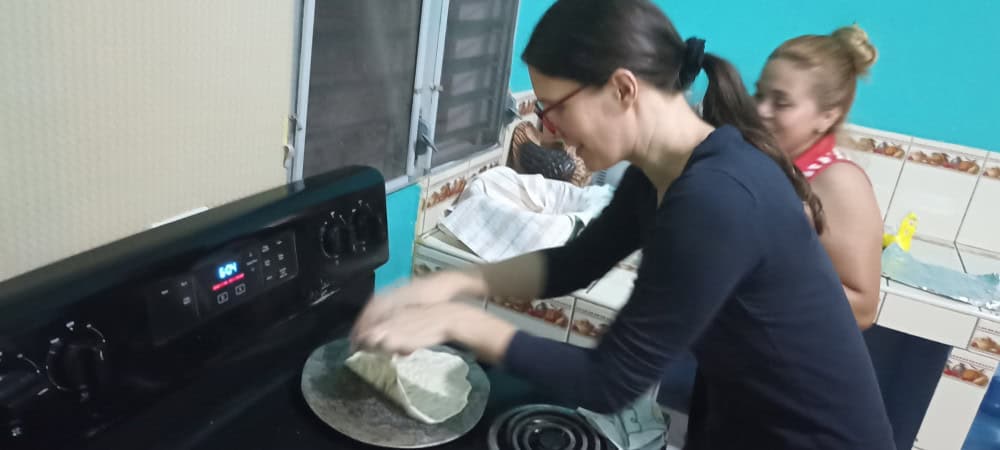It was half past ten in the evening. I was at the computer, Silva with a book in her hand, both already in the room.
The market right next to our mission, which was renovated just a month ago, was still full and vibrant.
Like every night, loud Colombian bachata music could be heard from the speakers of the restaurant next door. Kids played games, young boys and girls were at the gym, which, along with the games, were mounted on a paved platform and are a real attraction for the locals here.
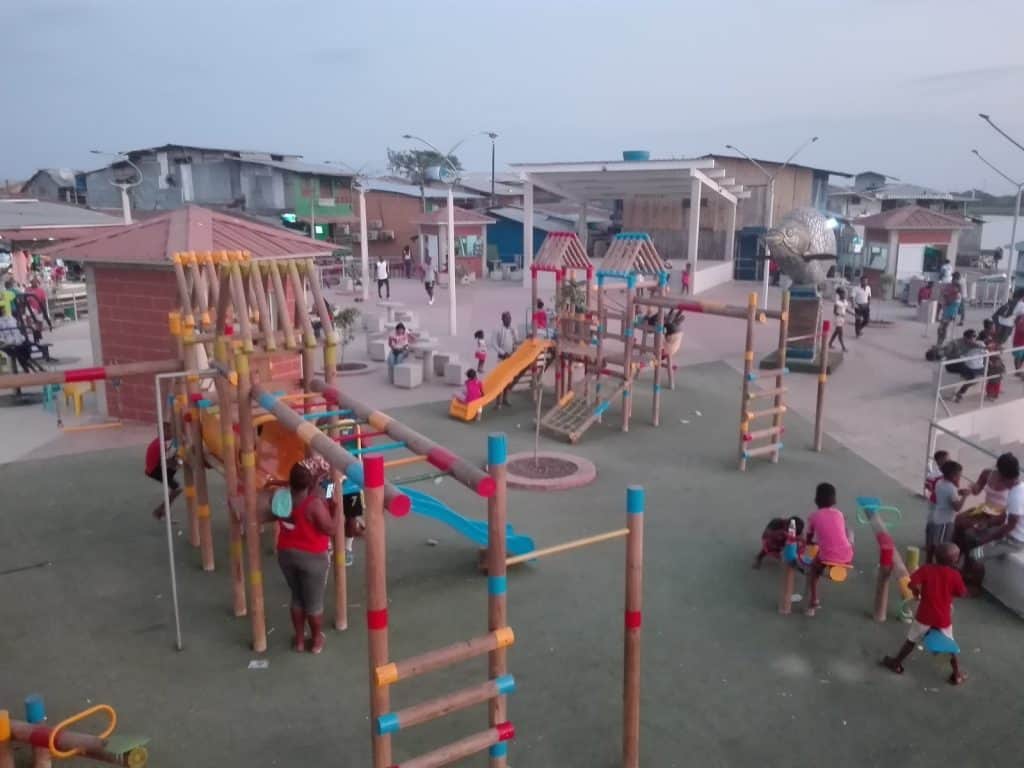
Suddenly it burst: once; twice; three times; four times. The loud pops were heard over the music and instantly caught our attention.
An evening like any other
But let me first go back two days.
Just as we did every day before we arrived in Riosucio , we met missionary Pat Alvaro and went to the market.
We love to go there because there are always people there and this is a great opportunity to connect with people. Alvaro has been doing this almost every evening for two years.
We sat at a stone table eating an excellent arepa – a typical Colombian dish made from corn flour and cheese.
The end of the festive truce
Usually our conversations are relaxed, but this time the missionary was more restrained than usual. Alvaro was immersed in his thoughts and occasionally looked around as if he were constantly checking something.
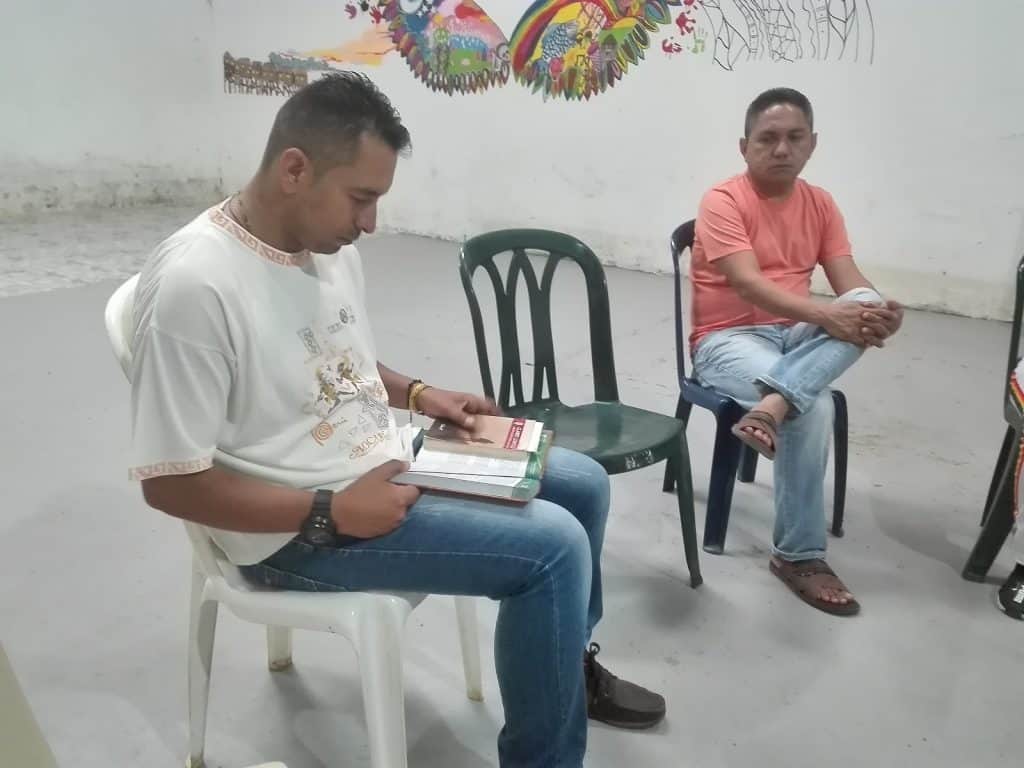
As we ate and headed toward our house just a few dozen yards from the square, the missionary stopped at the mission door, glanced once more carefully, then quietly and slowly began:
“During the Christmas and New Year holidays, soldiers also laid down their weapons. The envisaged truce between the paramilitaries, the guerrillas and the government forces began in mid-December and will end on January 10, it is said today.”
So now we understand Alvaro’s restlessness.
“What they have seen so far here in the village of Riosucio is something out of the ordinary. People are relaxed, dancing, having fun until the late hours of the night; first, because it’s vacation time and second, because they know they don’t have to fear war for a while.”
The market was more empty than usual that day because, while it was not yet the end of the holidays, people were well aware that the short period of peace was coming to an end. The door of uncertainty, unpredictability and danger was reopening. They knew that anything tragic could happen at any moment.
The missionary continued:
“It’s good that they know this, it can happen anywhere, anywhere, in villages in the woods, or here where we are, in the Riosucio municipal unit.”
While he was saying this, we were looking across the Atrato River in the direction of more than 130 small communities of Native Americans and Colombian blacks. There, the war between the guerrilla and the national army is most savage.
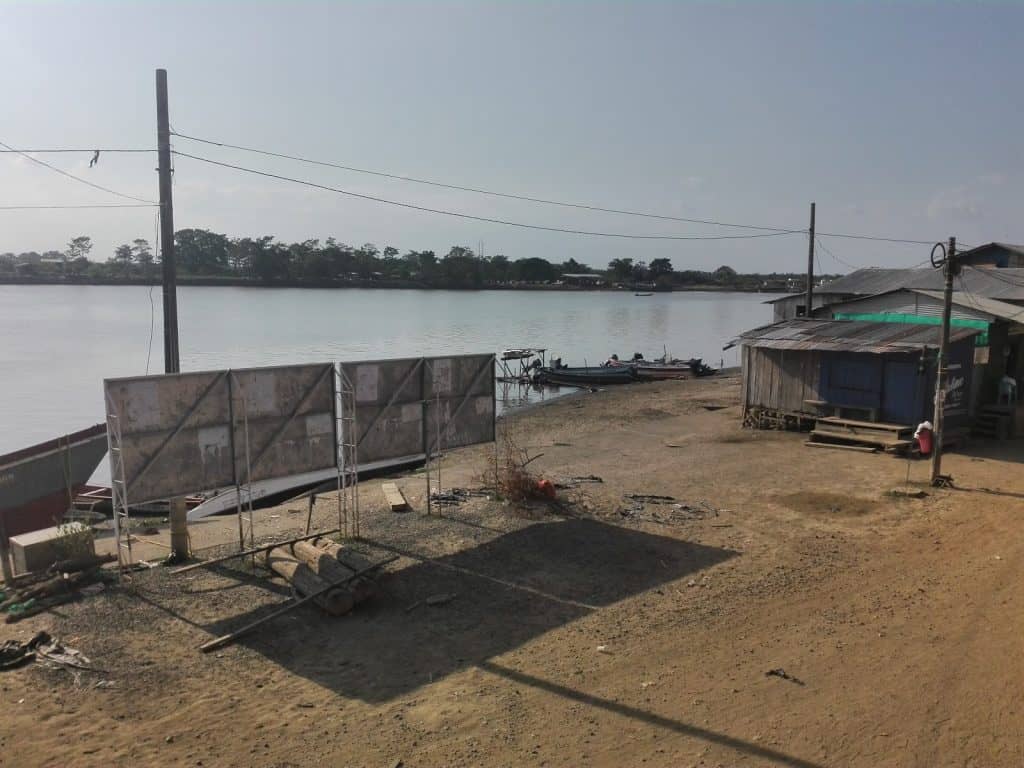
“Just before the holidays began, there was a confrontation, right there along the coast across the river,” said Alvaro, pointing to the first community of the primeval forest two hundred yards away.
“Some soldiers have been killed, so an answer will now follow. We don’t know where, but something is sure to happen. People also know this, so they saw that the market today was more empty than usual.”
To give God your life
I have to admit we were squeezed a little. Even though we were well prepared for Choco and the situation here, his words still alarmed us.
Alvaro doesn’t say things like that. In the two years that he has lived in Riuscito, he has experienced a lot.
Both he and all the people who live here have an incredibly sharp sense of these things, like animals who sense the danger a few days before it actually happens.
It is something that causes a lot of uncertainty; fear and virtually everyday tragic events.
In short, we had no reason not to believe him and all the reason in the world to fully commit our lives to God’s hands. He is the one who doses our days!
That night, we prayed even more strongly than usual. For the missionaries, for the people here, and for us. We are in God’s hands, let His will always and everywhere be done!
Panic in the market
We heard the sound the fourth time that evening in our apartment. Then, we heard a shout in the market. People were screaming and running down a sandy road past the mission. We knew that this time the sounds were not firecrackers, as was the case a few days earlier, when young people were still setting off fireworks.
We didn’t know exactly what was going on, except that there was panic outside. We left the room on the balcony with Alvaro. Silently and seriously, he stared out across the street from the square, into one of the restaurants.
“Social cleansing”
There at the entrance, people quarreled and shouted furiously. There was confusion in the market. Those who had not fled stood by the fence, in front of the restaurant, watching the events.
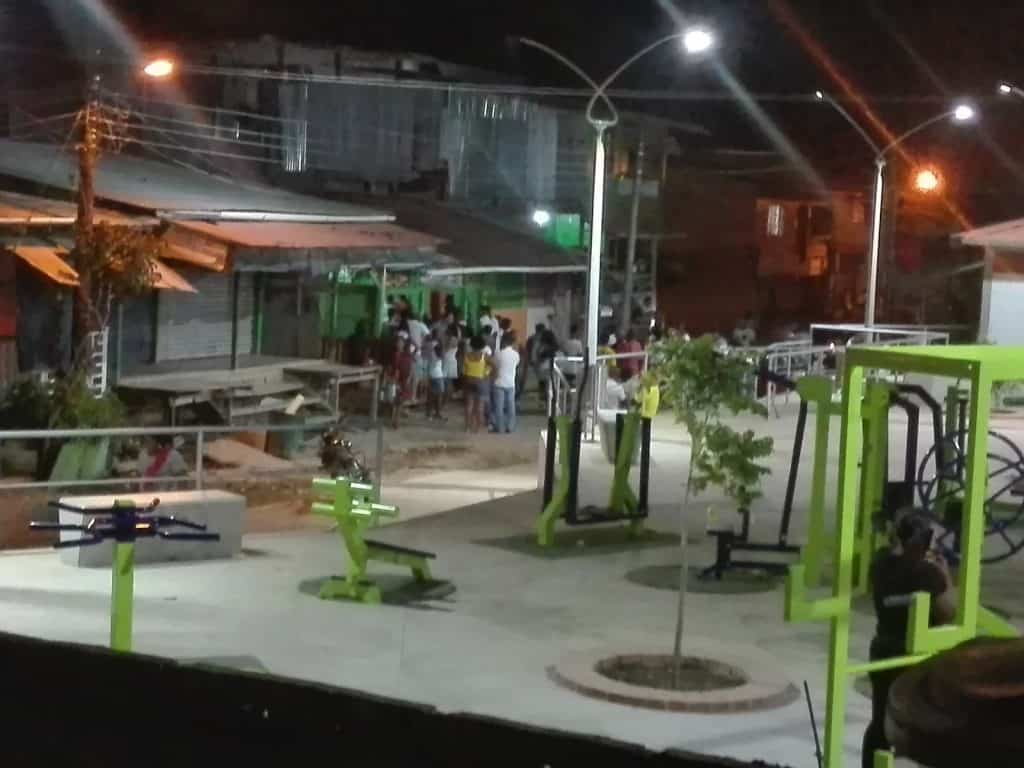
We didn’t have to ask.
“They killed somebody,” said the missionary, pointing in the direction of the restaurant. There was no fear or panic in his voice, just sadness as he shook his head.
“It’s not over, it’s just the beginning.”
“Who was it?” we asked him.
“I don’t know, but almost certainly the paramilitary, with some of its motives. They have a list of people that they ‘have’ to remove and delete one by one. This is called ‘social cleansing’ here.”
Riosucio is controlled by terrorists
Three police officers, who were supposed to protect the city from such attacks, slowly made their way across the square to the restaurant after nearly fifteen minutes.
They went inside, escorted out everyone who was near the corpse, and closed the door. Since then, no one has been able to enter.
I remember when a missionary was explaining the situation to us. He said that no one was protecting the people here. In fact, the paramilitary has been in control of Riosucio for years. They imagine themselves as protectors of the people.
“The police and the state army do nothing. Absolutely nothing! Not because they couldn’t, but because they just didn’t care, or better yet, because it suits them.”
They know about everything and everyone
Amazingly, the safety of these people here – the safety of the missionaries and also our security – depends on this illegal armed group with a hitlist.
I can’t even imagine how people can live here knowing that they are left to themselves, and that their lives depend on the characteristic coldness with which terrorists write people’s names on that list.
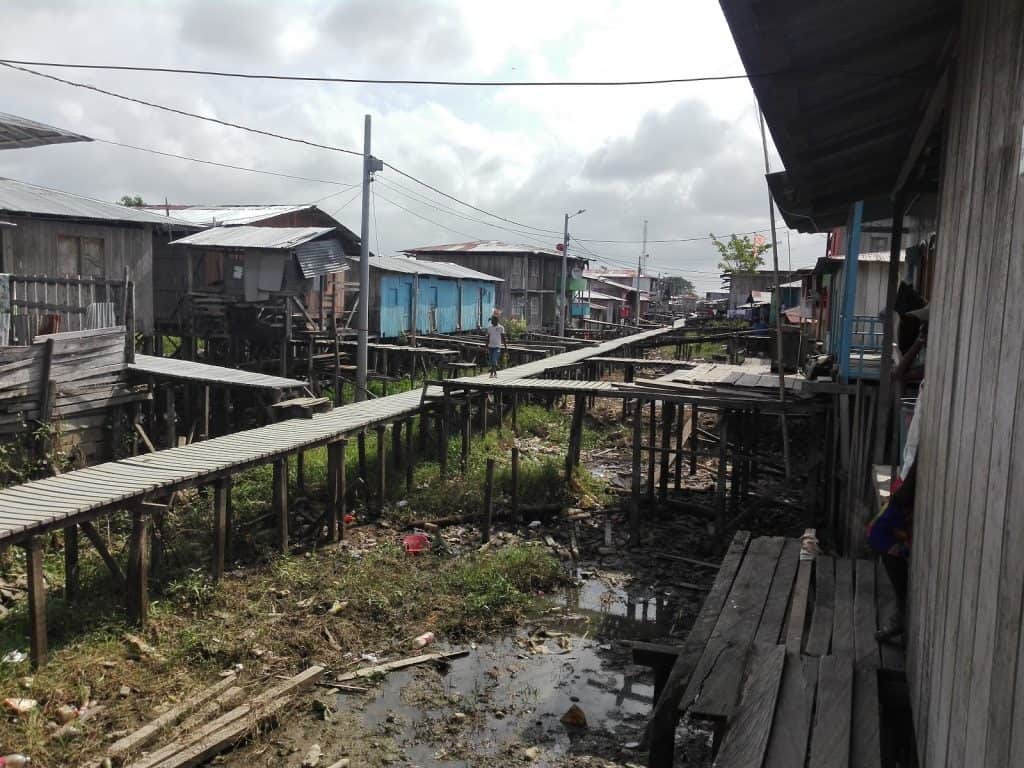
“Many paramilitaries live right here in this village. When we walk down the street, we certainly go past one of their houses. They are here, they are present, and with the help of their intelligence, they know everything and everyone. They know about you too, they know that you are here, they know that you are on your mission, and they have known this from the first day you stepped on the boat and got here.“
Missionaries – so far the only authority before the paramilitary
But there is still something important to be emphasized. The fact that we are missionaries and living on a mission plays a big role in our security.
As Alvaro put it,
“So far, the Catholic Church is the only presence in this city that has authority over the paramilitary. Greater authority than the mayor, state army and police.”
The paramilitaries who rule this city perceive the Church as neutral and therefore allow missionaries to do their work. Missionaries are allowed to visit communities along the Atrato River, enter villages, invigorate people, and help them with their needs.
If these missionaries were not here, the people would be completely alone!
The blood of missionaries is also spilled on the ground of Riosucio
But it wasn’t always that way.
Years ago, missionaries were also killed here on mission. Some were taken and killed in the woods, some were shot on the spot, one was beheaded with a machete.
The blood of these martyrs remains on the soil of Riosucio, as is the blood of many other, ordinary and completely innocent people in the village.
Why?
After a while, a woman from across the street came to the restaurant.
“Why, why, why?” she cried aloud. “My son, why did you have to kill him? Why, why?”
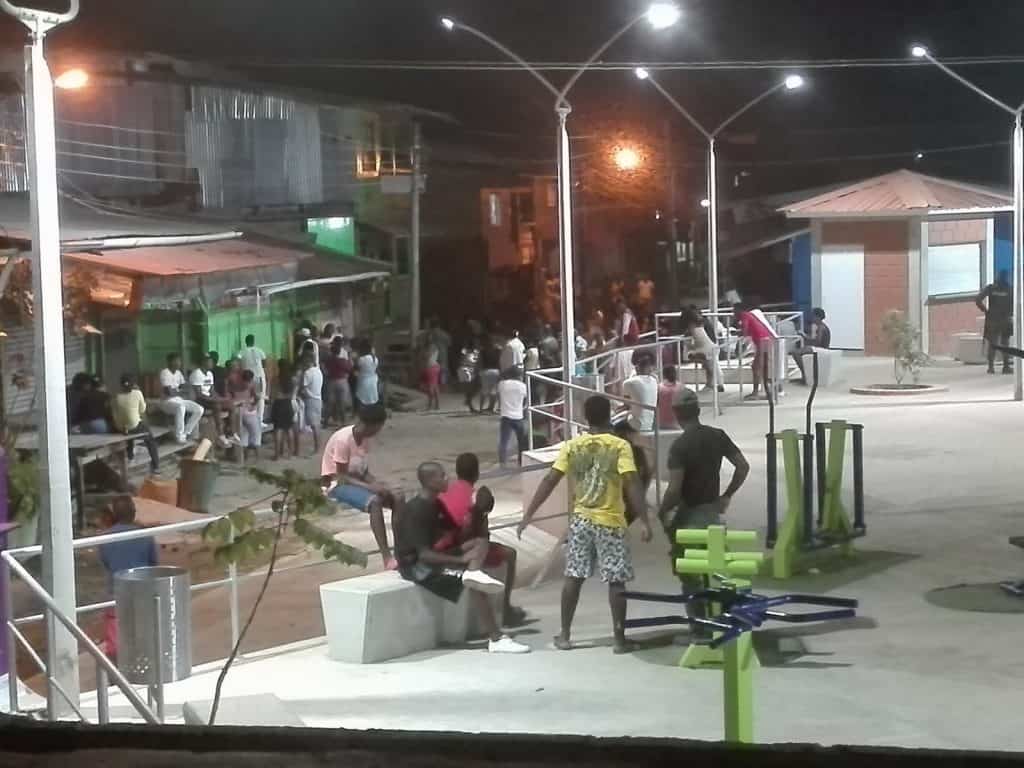
She stayed behind closed doors. People around her hugged her and comforted her, but the pain of losing her son was too great for any consolation.
She banged on the door and desperately asked the police to let her in – all in vain.
Within an hour, the restaurant opened, and from there, a young boy’s corpse was taken away in a black bag. At the time, people in the market were slowly heading home. And there was a deep and excruciating silence over the city.
The picture became clearer
The following day, the circumstances of the murder became more clear. Just about everyone in the village talked about the shooting – no news of a young murdered boy escaped.
In fact, the truth was far more tragic than it seemed at first.
It turns out that two armed men entered the restaurant. They did not look at the people in the market or the people on the street who were standing nearby at the time.
A young boy was sitting at the table alone. His friends had left the restaurant just before the men entered.
One had a photo in his hand, the other a gun. They asked him for his last name, and when they got the answer, they fired four rounds at him. Slowly, as if nothing had happened, they walked through the streets of Riosucio. The boy was dead on the spot.
Innocent blood
Unfortunately, the story is not over. Apparently the two men found out that they had killed the wrong man. The last name had been the same and the guy happened to look similar.
The men went to the other side of the village, in the upper part of Riosucio, and killed his cousin there. The second shooting was too far away to be heard from the mission.
It is now known that the other boy was also not the one that the guerrillas were looking for. So two innocent people died that night.
The one that they were looking for is not currently in Riosucio, and the question is whether he will return here as well. There were drugs involved, and the boy had fallen in with bad company. He was related to soldiers of the opposite side, and drugs were an important source of income for both illegal military groups.
The only hope for a poor family
Our prayers go out for the two guys who lost their lives that night. We know more about the first young man than the second. Many who work here on mission have known him.
Everyone in turn says that he was an extremely good man. He was twenty-four years old, studying in Medellin, and during the holidays he returned to visit his mother and younger brothers in Riosucio.

His family lives in great poverty. He was the only one in the family who made an income, which he sent home to his family.
So to speak, he was the only hope for this family. How his mother will live from now on is a big unknown, but luckily, the people here are very supportive of each other.
Operando – also in Riosucio
The people help each other and give each other hope and comfort. In fact, this is the only presence of God that we can feel in this city.
People who live in such hopeless conditions, constantly in the face of fear and in the eyes of terrorists, still get out of bed every morning, still walk the streets, still come to the market, still laugh, listen to music, dance, and still live in hope for a better future.
And Operando – God in action – is also manifested in the missionaries here. They are the only ones who remain with these people and are always available to them, regardless of the dangers, regardless of the fact that they also risk their lives.
